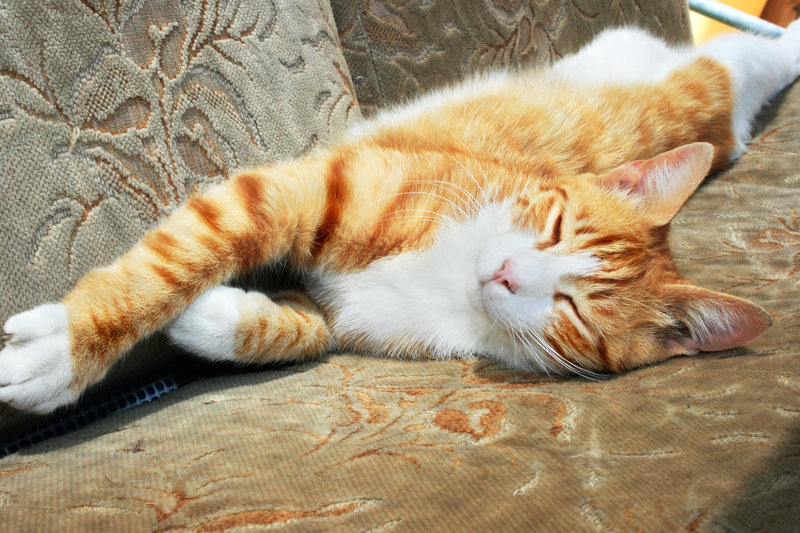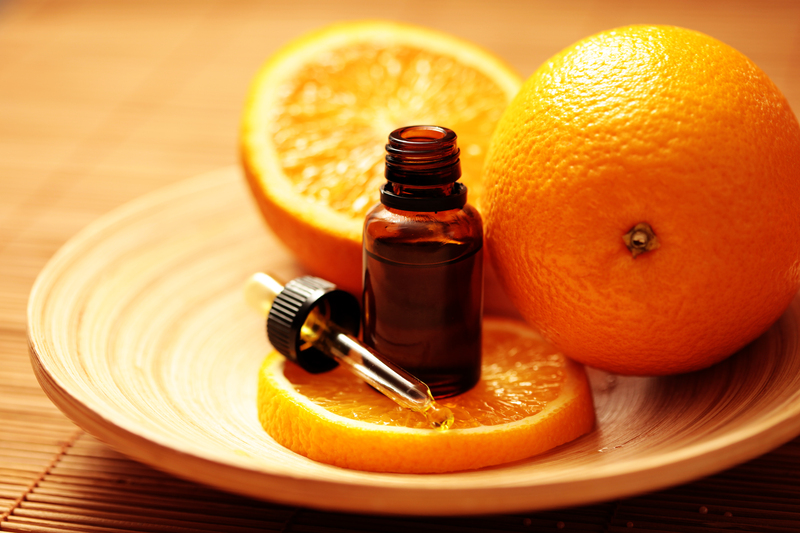Glitter & Shine: Expert Tips for Cleaning Your Jewellery
Posted on 24/09/2025
Glitter & Shine: Expert Tips for Cleaning Your Jewellery
Jewellery has adorned humanity for centuries, representing love, status, and timeless beauty. Yet over time, even the most lustrous gems and metals lose their sparkle. To maintain their brilliance, regular cleaning is essential. This comprehensive guide delves into expert jewellery cleaning tips, dos and don'ts, and advice for protecting your precious pieces, ensuring they continue to shine brightly for years to come.

Why Cleaning Your Jewellery is Essential
Dirty jewellery not only looks dull but can also be a breeding ground for germs. Lotions, sweat, skin oils, dust, and makeup can cloud stones and tarnish metals. Routine cleaning helps to:
- Eliminate accumulated grime and bacteria, maintaining hygiene
- Restore the original sparkle and shine
- Prevent the buildup of residue that could cause long-term damage
- Highlight the intricate beauty and craftsmanship of your jewellery
Understanding Your Jewellery: Know Before You Clean
Not all jewellery is created equal. Different gemstones and metals require tailored care. Understanding your jewellery's composition is the first step to effective cleaning without causing damage. Consider:
- Precious metals: Gold, silver, platinum
- Gemstones: Diamonds, sapphires, emeralds, rubies
- Organic gems: Pearls, opals, amber
- Costume jewellery and plated items
Tip: If you're unsure about the materials in your jewellery, consult your jeweller before attempting any cleaning.
Home Cleaning Methods: Sparkle in Minutes
1. The Classic Soap and Water Solution
This gentle cleaning technique is suitable for most diamonds, sapphires, and precious metals. Here's how to do it safely:
- Fill a bowl with warm water (not hot!) and add a few drops of mild dish soap.
- Let your jewellery soak for 10-15 minutes.
- Gently scrub with a soft-bristled toothbrush.
- Rinse under lukewarm running water and dry with a lint-free cloth.
Note: Avoid this method for pearls or delicate stones, as they may be sensitive to soap and water.
2. Ammonia Solution for Extra Sparkle
For an intense, high-shine clean--especially for diamonds and gold--try this technique once a month:
- Mix one part ammonia with six parts water.
- Soak your jewellery for no more than 60 seconds.
- Remove and gently brush if necessary.
- Rinse thoroughly with water and dry.
Warning: Never use ammonia on pearls, platinum, or coloured stones; it may cause irreparable damage.
3. Baking Soda Paste for Tarnished Silver
Silver jewellery is prone to tarnishing, which appears as a dull, grey-black coating. Combat tarnish safely with:
- Three parts baking soda mixed with one part water to make a thick paste.
- Apply the paste with a soft, lint-free cloth, rubbing gently.
- Rinse under cool water and buff dry with a clean cloth.
Pro Tip: Never use this method for pieces with gemstone inlays or intricate designs where paste may lodge.
4. Ultrasonic Cleaners: When and How to Use Them
Ultrasonic machines use high-frequency sound waves to remove stubborn dirt. They are best for:
- Plain gold and platinum jewellery
- Hard gemstones such as diamonds
Do not use ultrasonic cleaners for:
- Pearls, opals, emeralds, or any organic stones
- Anything with glued settings or delicate filigree work
Cleaning Delicate Jewellery: What to Avoid
Pearls: Handle with Care
Pearls are highly susceptible to scratches and chemical damage. The best approach:
- Wipe gently after every wear with a soft, damp cloth.
- For deeper cleaning, use lukewarm water only; never immerse or soak.
- Lay flat to air dry, as water can stretch the silk thread.
Opals and Soft Stones
Opals, turquoise, amber, and some other stones are porous and can absorb liquids. Clean with a DRY, soft cloth only. Avoid all chemicals, soaps, or ultrasonic machines.
Professional Cleaning: When to See an Expert
No matter how careful you are, some situations call for a jewellery professional. Seek expert care if:
- Your jewellery holds antique or heirloom value
- You notice loose stones, weakened prongs, or visible cracks
- The piece cannot be cleaned with water or mild soap alone
- You are unsure about the cleaning suitability for your specific jewellery type
Most jewellers offer professional jewellery cleaning services that not only restore shine but also entail safety checks for setting security and general wear.
DIY Jewellery Cleaning: Tips for at-home Brilliance
- Always read care instructions. Some manufacturers provide specific cleaning directions.
- Use soft toothbrushes and lint-free cloths for gentle cleaning.
- Separate jewellery by metal and gemstone to prevent scratches during cleaning.
- Clean over a bowl, not an open drain, to avoid losing small pieces.
- Let jewellery air dry fully before storage to prevent moisture build-up and oxidation.
Common Mistakes to Avoid When Cleaning Jewellery
- Using abrasive cleaners or harsh chemicals
- Submerging delicate or porous stones
- Using toothpaste, baking soda, or lemon juice on soft gemstones
- Cleaning costume or plated pieces too vigorously--coatings may flake off
- Using ultrasonic or steam cleaners without confirming suitability
Long-term Care: Keeping Your Jewellery Sparkling
Storage Matters
Proper storage extends your jewellery's life:
- Store pieces individually in soft pouches or the original boxes to avoid scratches
- Keep silver polished with anti-tarnish paper or pouches
- Keep jewellery away from sunlight and humid environments
- Remove jewellery before swimming, showering, or applying lotions and perfumes
Regular Inspections
Check clasps, prongs, and settings regularly for damage. Addressing these early prevents potential loss of stones and further damage.
Professional Polishing
Every 6-12 months, bring your jewellery to a professional for deep cleaning and buffing, which helps to maintain its original lustre and shine.
Frequently Asked Questions: Jewellery Cleaning and Shine
How often should I clean my jewellery to keep it sparkling?
For frequently worn jewellery--such as rings and earrings--clean every two weeks. Less-worn or heirloom pieces can be cleaned monthly or as needed.
Can I use baking soda to clean all jewellery?
No, baking soda is only suitable for plain silver. Avoid using it on gold, platinum, pearls, or soft gemstones.
What is the safest jewellery cleaning method?
A solution of mild soap and warm water used with a soft brush is safe for most durable jewellery types. Always double-check the care guidelines for your specific pieces.
Should I remove my jewellery before sleeping or showering?
Yes. Prolonged contact with water, sweat, and harsh chemicals can dull finishes and weaken settings. Remove rings, necklaces, and earrings before sleeping, showering, or exercising.
When should I take my jewellery for professional cleaning?
If your piece is valuable, antique, or contains delicate stones, schedule professional cleaning annually or as soon as you notice dullness, residue, or damage.

The Best Products for Cleaning and Caring for Jewellery
Commercial Jewellery Cleaners
Specialist jewellery cleaning solutions are formulated to be safe and effective on most stones and metals. Always follow manufacturer instructions and test on a small section first.
Microfiber Cloths
These soft, non-abrasive cloths are ideal for buffing jewellery and removing fingerprints without scratching metal or stones.
Anti-Tarnish Storage
Store silver in anti-tarnish bags or pouches to prevent blackening. These storage solutions help maintain shine between cleanings.
Conclusion: Let Your Jewellery Glitter and Shine
Jewellery is more than just an accessory--it's a cherished expression of style and sentiment. By cleaning your jewellery regularly with the right techniques and tools, you'll not only keep your favourite pieces sparkling but also protect them from long-term damage. Embrace these expert tips for jewellery cleaning to ensure every ring, necklace, bracelet, and earring in your collection remains a treasure to admire and enjoy. Remember: when in doubt, consult a professional to safeguard your jewellery's glitter and shine for generations to come!
Latest Posts
Keep Your Covers Intact: Unveil the Mystery of Safe Sofa Cover Washing
Unlock Pro-Level Skills for Sparkling Clean Windows
Revive Your Bling: Innovative Jewellery Cleaning Methods




